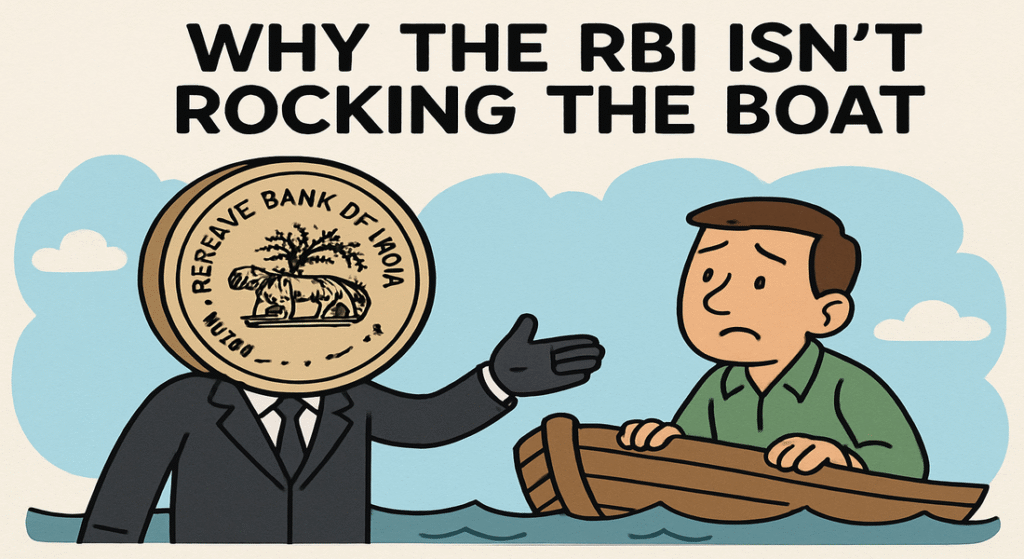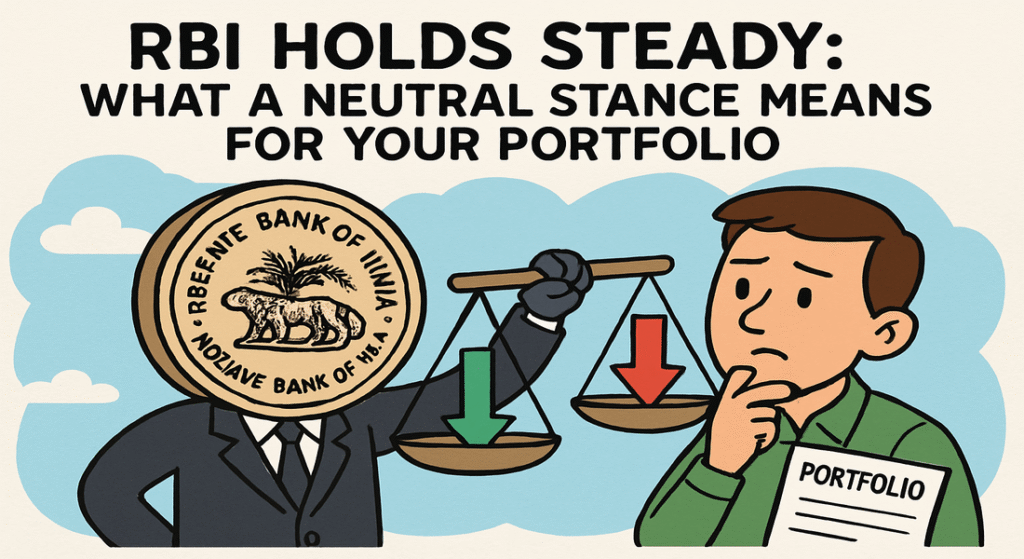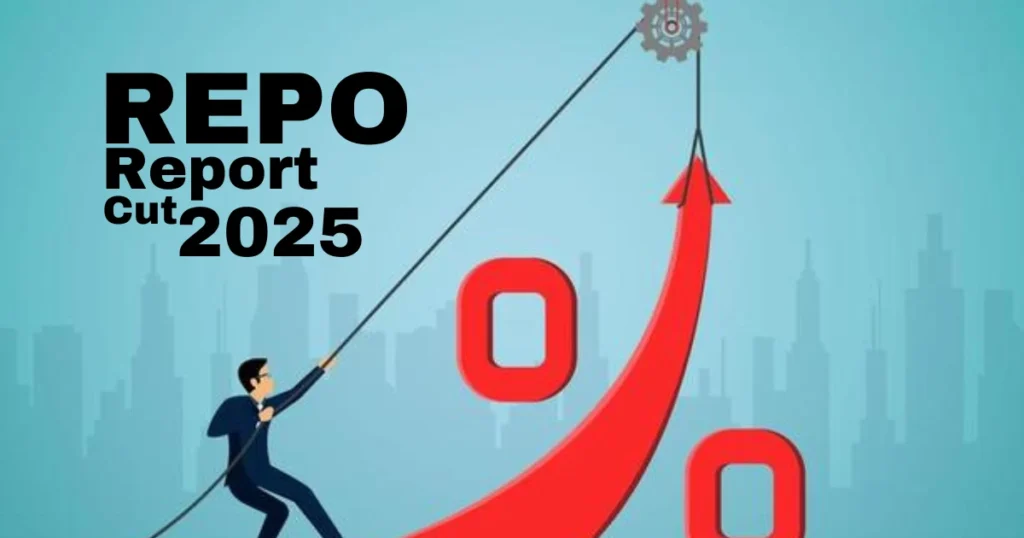The Reserve Bank of India (RBI) just hit the pause button—and that’s not necessarily a bad thing.
In its latest monetary policy review, the central bank kept the repo rate unchanged at 5.50%, sticking to a “neutral” stance. No fireworks, no surprises—but if you’re an investor, this decision carries weight.
Let’s break down what it means for your money.
First Things First: What Is a “Neutral” Stance?
When the RBI says it’s taking a neutral stance, it means it’s not leaning toward either raising or cutting interest rates anytime soon. In simple terms, the central bank is saying, “Let’s wait and watch.”
This comes at a time when inflation is hovering in a manageable range, growth is steady, and global uncertainties (like US trade tensions and oil prices) are still very much alive.
Why the RBI Isn’t Rocking the Boat

The central bank’s decision to hold rates is largely driven by caution. Here’s why:
- Inflation under control: Consumer price inflation has cooled off a bit, giving RBI breathing space.
- Global instability: With geopolitical tensions and trade wars brewing, RBI doesn’t want to make any sudden moves.
- Stable growth signals: The economy isn’t overheating, nor is it cooling dramatically.
In short, RBI is prioritizing stability over action.
What It Means for Your Portfolio
🏦 Banking & NBFC Stocks:
A neutral stance usually supports banking stocks. Lenders like HDFC Bank, ICICI Bank, and Axis Bank might see stable NIMs (Net Interest Margins) in the near term.
🏘️ Real Estate & Auto:
Since rates aren’t rising, sectors like real estate and auto could get a slight boost. Homebuyers and car buyers might continue to benefit from steady EMIs.
📈 Debt Funds:
Investors in debt mutual funds—especially long-duration ones—may not see sharp gains, but the steady rate path brings predictability. Stick to short-to-medium duration funds for now.
💹 Equities Overall:
The market tends to like predictability. The RBI’s neutral stance means no surprise disruptions, which is usually good for equities—especially when earnings season is looking healthy.
The Road Ahead: What Should Investors Do?

- Don’t overreact to policy noise. Neutral means stability.
- Watch inflation and global events—these will guide RBI’s future moves.
- Stick to your asset allocation. If your goals haven’t changed, neither should your investments.
- Stay diversified—equity, debt, gold all have a role, especially in uncertain times.
Final Thoughts
In a world that’s constantly on edge—from trade wars to political tensions—the RBI has chosen calm over chaos. And that’s a signal for you to do the same.
A steady hand on the monetary policy wheel gives investors a rare gift in today’s markets: clarity. Use it wisely.




Pingback: PSU Banks vs Private Banks: Which Are Better for Investors?